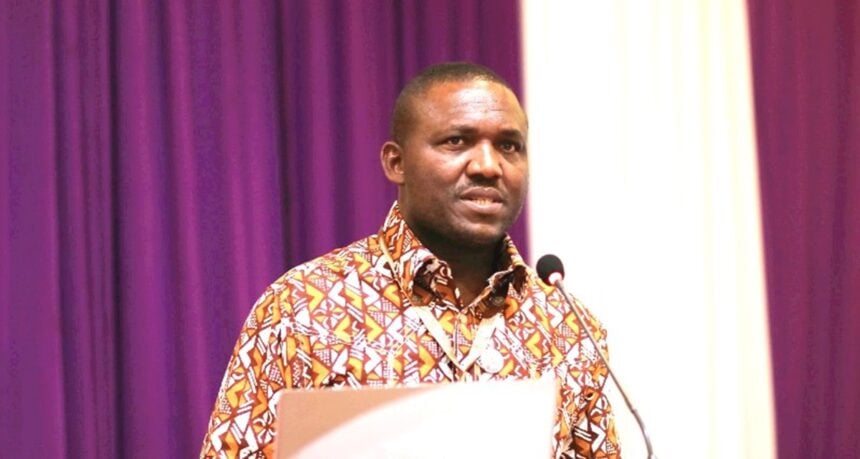In this exclusive interview with CHRISTIAN APPOLOS, the General Secretary of the African Regional Organisation of the International Trade Union Confederation (ITUC-Africa), Comrade Akhator Joel Odigie, delves into the growing impact of the organization’s New Year School, the strategic shift in trade union engagement, the target of African trade unions and the indispensable role of institutions like the ILO in protecting workers’ rights.
What are the low-hanging fruits ITUC-Africa has achieved through the New Year School?
There are several low-hanging fruits we are harvesting from the New Year School initiative. First, in the area of women and youth empowerment, we’ve significantly increased access and participation. Young people and women now have greater opportunities to engage, learn, and contribute to the overall pursuit which is a better and prosperous Africa where the citizens enjoy a good living condition. The idea to include more women and young people is no accident, rather, it’s intentional, based on data. We understand that more women are entering the labour market, and our continent is predominantly youthful. So, to grow a vibrant, inclusive, and future-oriented trade union movement, we must bring these groups onboard, empowered with knowledge, skills, and opportunities. this empowerment includes men as well. It’s about building a knowledge-based and inclusive force for decent work and for the demand for good governance.
Second, we’re fostering a renewed consciousness of pragmatic education; education that leads to action. We’ve remodelled the structure of the school. It’s no longer about sitting in a room all day and going home with theories. Now, we get on the field,we take action, we show what pragmatic, applied education looks like; how learning connects to real-world advocacy and organising.
Also: FG announces major overhaul of electricity distribution companies
Third, our advocacy on socioeconomic issues has seen improvement. Social protection remains a critical priority for us. If Africa wants real development, social protection must be prioritized by governments across the continent. Provision of healthcare, access to education, sanitation, and food security must take center stage of governance. Just as we are already doing, all stakeholders must join hands to push for policies that fight inflation so that food is not priced out of the reach of ordinary people. These are not lofty dreams, they are non-negotiable essentials. We remain resolute in our advocacy for this and we steadfast.
We’ve also escalated our advocacy around internal resource mobilization. We believe infrastructure development and national survival should not depend solely on donor aid. What resources can we generate from within? This is why we remain resolute in our call for an end to illicit financial flows, tax evasion, and aggressive tax avoidance. African governments must implement policies that see that workers and the poor are bearing the burden of tax payment while big multinational companies and their likes pay less than they ought to. We advocate for better debt management and call out reckless lending. International financial institutions and rich global countries must shift toward grants and away from exploitative loans with impossible interest rates.
Finally, we’ve broadened our engagement beyond traditional union circles. The 2025 New Year School featured voices from employers, universities, governments, our constituents, and international organizations like the ILO. This is a strategic shift. We’re done talking to just ourselves. We’re reaching out to all relevant stakeholders. We want this inclusive dialogue to become the norm.
We want everyone; individuals, communities, and institutions alike to clearly understand the motive behind all that we do. First and foremost, we are Africans. We are citizens of this continent, and we are directly impacted by the many challenges that persist across our nations. Having carefully studied these issues, we have come to a fundamental realization: only we, as Africans, can truly uplift ourselves.
We believe that meaningful progress requires collective action. Governments, trade unions, civil society organisations, and every segment of society must come together with a shared purpose and determination to improve the conditions across our continent. It is time to revolutionise the way we do things, business as usual is no longer acceptable.
Governments must rise to the occasion by implementing transformative policies that address our problems holistically and sustainably. As trade unions, we have already taken bold steps in the right direction, and we now call on our governments to match this momentum with concrete actions.
We cannot improve our countries and Africa as a whole through wishful thinking or endless dialogue alone. Action is essential. This is why we actively seek collaboration with African governments and all stakeholders who are committed to building a better, more prosperous future for our people.
You said ITUC-Africa is willing to work with governments across Africa. How do you intend to engage national governments that don’t recognize the value of trade unions?
This is exactly what we have started and it’s a crucial part of our strategy. First, we’ve made our intent clear: we seek collaboration, not co-option. Collaboration does not mean trade unions becoming government cheerleaders, propaganda machines or vuvuzelas. Far from it. When governments do well, we’ll commend them and cite them as good examples. When they fail, we’ll critique them and offer better alternatives.
We understand that some governments and their policies are hostile toward unions. We won’t take a confrontational route, hence we are partners in progress. Instead, we’ll begin with a few governments: two, three, four, maybe five and work with them to showcase what constructive engagement and partnership can achieve. Positive examples speak volumes. We are sure that even our government officials are tired of the sorry situation of the content and resultant effect. Therefore our success in one or two or more countries will definitely spur others to follow suit.
But we won’t be silent where hostility persists. We will continue to organize, educate, and raise awareness. Our strategy includes building stronger, more united unions. We’re working hard on trade union unification, especially across Francophone Africa, to create platforms for common action. Organising new members and broadening our advocacy scope to include wider societal issues is key. Workers live in communities so through the New Year School and other engagements, we are geared to connect with our communities and educate them on the issues so they can be part of the issues. Our intent is, when we speak, we must speak for all of society.
Again, where governments are antagonistic, we will not be deterred. We will persist, engage constructively, and demonstrate through real examples that we are partners in progress for the betterment of Africa and the future of our children and children’s children.
Some critics describe the ILO as a ‘toothless bulldog’ when it comes to defending workers’ rights against government hostility. What’s your take?
I respectfully disagree. The ILO is not a toothless bulldog. First, we must understand that the ILO does not have an army. It’s not a military force. But it is one of the most unique institutions in the UN system. Tripartism is its greatest strength and uniqueness. Its tripartite structure brings governments, employers, and trade unions to the same table, giving everyone a voice. This built-in dialogue mechanism is powerful.
Dialogue; jaw-jaw instead of war-war is the ILO’s strength. It offers tools and mechanisms for negotiation, conflict resolution, and norm enforcement. And it works perfectly. We’ve taken cases to the ILO and seen results. Perhaps not dramatic results that make headlines, but real, meaningful progress. So the ILO has not been quiet, in fact it is doing so much more for the world of work and human society in general. From issues of international labour standards to new social contract, decent work agenda, skills and re-skilling, climate change to labour migration, child labour and many more.
People just need to understand how the ILO operates. They need to know that it is governed by norms, conventions, and treaty obligations. Governments that ratify these instruments are bound by them. When they violate these obligations, we expose them through the ILO. We’ve used ILO findings to influence decisions by international financial institutions and multinational corporations. These reports help us name and shame violators, eroding their global legitimacy. Some African governments have lost credibility abroad because of ILO reports’ exposure.
Furthermore, the ILO provides technical assistance and institutional support. Many times, governments lack the capacity to implement the standards. Through ILO’s help, we’ve seen improvements in countries like Botswana, Liberia, Guinea, Nigeria, Ghana, Sierra Leone, Zambia, Zimbabwe, and many countries in Africa, Asia, Latin America and others.
In sum, the ILO is effective. It may not wield punitive power, but it has authority, persuasive power, and global reach of which no reasonable and responsible government would want to contend with. Employers, trade unions, and governments alike bring their concerns to the ILO and many get redress. We must understand its tools and utilise them wisely. The ILO is doing its job well within the limits of its mandate.






